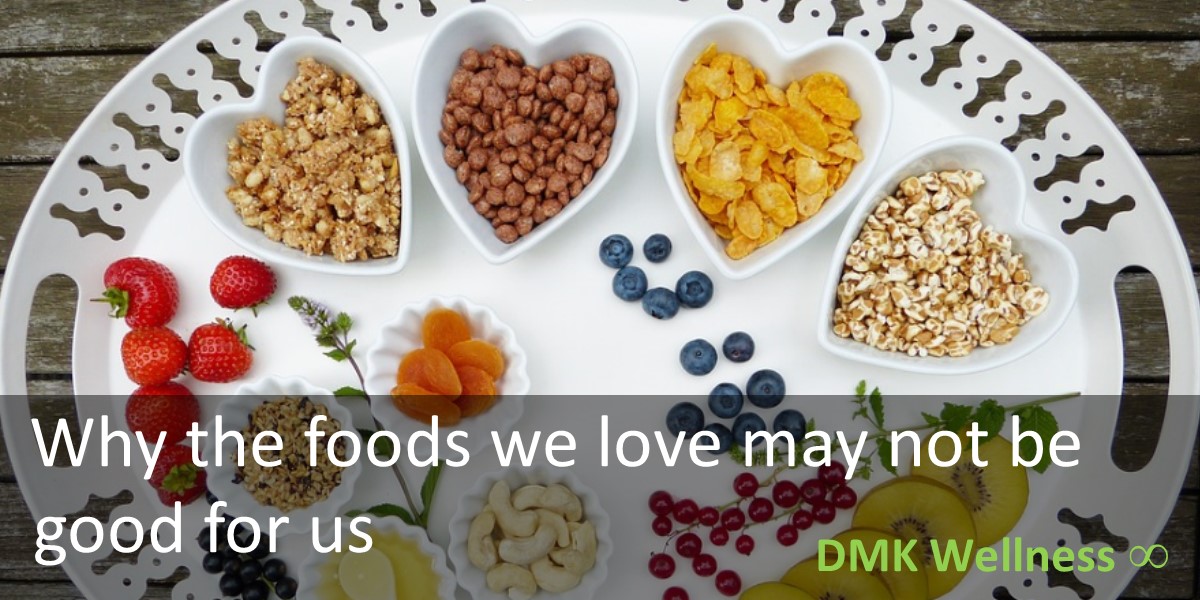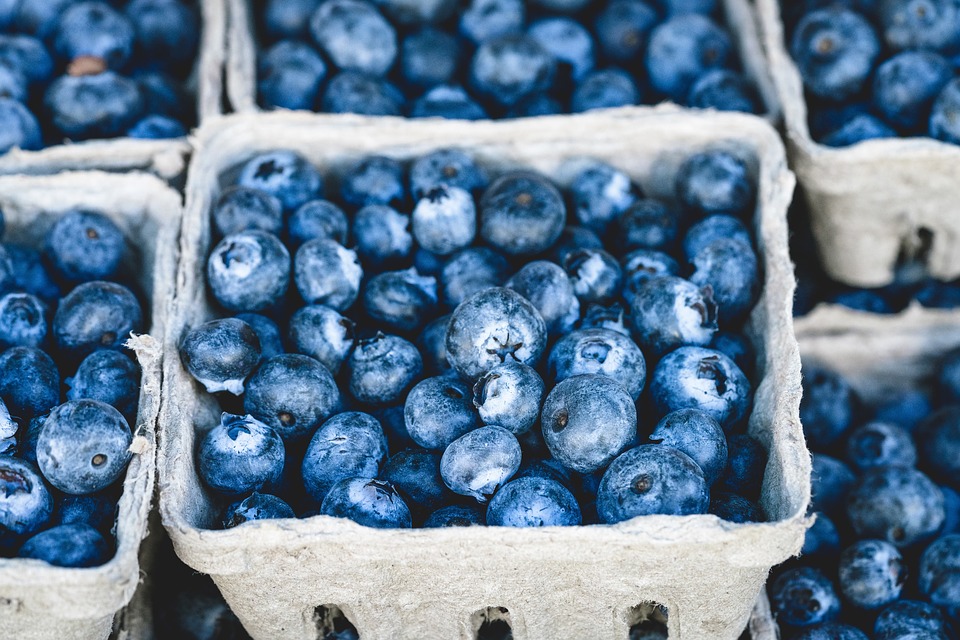Could a candy bar be better than blueberries?
While the benefits of fresh fruit will always be better than a sugary, processed food - chemical treatment and genetic intervention of crops in order to grow larger, pest free fruit may actually cause more harm to your body over the years than the average, occasional candy bar.
The choice to eat a food like candy without the possibility of pesticides may be a better choice than years of "healthy alternatives" such as non-organic fruit, laced with unknown pathogens.
Some of the biggest offenders of pesticide residue are white potatoes, berries, peaches, nectarines and apples. The average potato has more pesticides measured in weight than any other produce. And yet, we gravitate to many of these produce items as part of a healthy lifestyle.
The problem is that the food itself is extremely beneficial and packed full of necessary nutrients and vitamins which drive the average consumer to add these foods into their diet. Numerous sources report the percentages of obesity due to years of packaged, processed foods as a detriment to our society, health and life span. However, the fresh food industry is like any other. It survives on high production, minimal crop loss and consumer demand.
Fast food or fresh food, suppliers are still in it to make money
In order to meet such demands and competitive costs retailers bring in food from farmers based in nearly all parts of the world. More suppliers with lower labor costs mean the supply chain is competitive. Retailer's costs continuously fluctuate yet they must maintain marketable retail prices to sustain market share in the communities they serve. This induces wholesale fresh food acquisitions for the lowest costs possible, which means commercial farmers must also find the most effective means of producing the largest crops for the least amount of time and money.
These farmers are constantly seeking new opportunities to meet the demands, make a profit and maintain vendor relations. This results in the use of pesticides, genetic engineering and fertilizers in order to stay in the game.
So, while we read, learn, hear about the importance of fresh foods, such as fruits and vegetables, the average consumer is still unaware of possible detriments to their health. In fact, the chemicals and pesticides used on these foods have been linked to diseases and conditions such as Alzheimer's, cancer, inflammatory conditions and auto-immune disease. Endocrine disrupting properties have also been linked to the use of agricultural chemicals.
While many consumers regard their food as safe, we can no longer rely on the adage, "We've eaten these foods for years without harm." It's clear that many changes to our bodies such as hormonal, behavioral and immunological issues in addition to disease, allergies and cancers of unknown origin could likely originate from our food source. This is noted in the numerous studies of different cultures, their diet and food supply.
Recognizing American's eating habits and food choices may be detrimental is part of the reasons for heavy endorsements for fresh foods in comparison to processed foods with additives and preservatives. Diets that include a high quantity of sugar, fat and calories also contribute to diseases and poor health. However, the aim to eat fresh food is to steer away from the chemicals in packaged food and yet, we consume fresh foods with similar or worse contaminates believing we are doing the right thing.
Who's looking out for the American consumer?
The industry ran wild until 1996 when Congress passed the Food Quality Protection Act that resulted in the EPA involvement to ensure the level of pesticides on food is safe for children and infants. The Department of Agriculture tests annually and yet still reports more than half of foods tested still have pesticide residue. Not only is the concern for single pesticide residue, but more than a third of the USDA tested foods were positive for multiple pesticides. It's unknown what effects the mixture of these residues may have, especially over long-term exposure.
Though it's correct that pesticides can be washed away along with dirt and bacteria when preparing fruit to eat, many consumers are unaware of the trapped pesticides in the wax coating on the fruit or systemic infiltrate in the plant's root system from which the fruit originated. This doesn't necessarily mean that eating non-organic food, on occasion, is likely to be harmful (outside of food allergies); rather it's the cumulative exposure of multiple pesticides and chemicals. Herein lies the problem. In order to achieve the greatest benefits of eating healthy food, it's recommended we include such foods in our regular daily diet. If these non-organic, fresh foods are part of our regular, our exposure rate is obviously increased.
While pesticide residue has generally declined since the 1996 Food Quality Protection Act, it's clear that the industry is still heavily dependent on the use of these chemicals to meet the demand and low costs in order to maintain the interest of affordable fresh foods of the American consumer and the grocers who provide them.
While we value and seek protection under the umbrella of Congress, FDA, EPA, USDA and associated laws that are meant to ensure the safety and quality of the foods we purchase and consume, the overall responsibility to stay healthy and eat responsibly falls on the consumer. This results in a "buyer beware" atmosphere when shopping in our neighborhood grocery store. We can not just rely on the concept that our food is safe on the basis of regulatory bodies of government, we must be educated and aware, responsible for our own long-term health.
Some better than others
While the majority of the nutrients are in the skin of some fruits and vegetables like apples, potatoes and nectarines, others are not. So, it's usually safe to consume fruits like oranges and bananas, where the skin of the fruit is peeled and not eaten, in the non-organic variety with less concern of pesticide residue.
However, it's best to pay the extra money for organic fresh foods like berries, apples, celery, peppers, peaches, nectarines and similar varieties without removable outer layers. After all, if you're purchasing these foods to live a longer, healthier life, you want the food to be healthy and free of the chemicals associated with poor health or disease.
Fresh food knowledge and industry modifications may, in fact, be part of how our society will decrease the prevalence of disease and issues that reduce our life expectancy and increase our nations rising health care costs. So, pay the extra dollar for the berries and contribute to affordable health care services or insurance in years to come based on a nation of healthier citizens.
Shop wisely and remember, if the deal seems too good to be true, it's probably laced with pesticides.![]()
Reference: https://www.consumerreports.org/cro/health/natural-health/pesticides/index.htm
Disclaimer
The information provided by respective owner's ("we", "us" or "our) on Divorce Me Knot (referenced also as "DivorceMeKnot.com", "dmk", "DMK", "OurDMK.com", "OurDMK", "application" or "site") is for general informational purposes only and is subject to change with or without notice. All information on our site and application is provided in good faith, however we make no representation, guarantee or warranty of any kind, express or implied, regarding the accuracy, validity, adequacy, reliability, availability or completeness of any information on the site or application.
The information in articles and all content on this site should not be considered psychological or behavioral health therapy, counseling or legal, financial, real estate, mortgage, insurance or professional advice. It should not be used in place of professional advice from a licensed professional or credentialed expert. Providers of content on this site, herein known as "Contributors" (inclusive of, but not limited to writers, bloggers, editors, employees, developers, graphic designers, advertisers, partners, affiliates, references, experts, professionals and site owners) are not legally liable for any misinformation, errors or omissions. Names, details and images may have been changed in the content of this site.
Under no circumstances should DMK and/or it's Contributors have any liability to users of the site for any loss or damage incurred to users as a result of the use of this site or application or reliance of any information provided on the site or application. Use of the site or application and reliance on any information from the site or application is solely at the user's own risk.
For complete site disclaimers review "Disclaimers" on this site or click the link below.
Read Complete Site Disclaimers Here




















 How to resolve AdBlock issue?
How to resolve AdBlock issue?